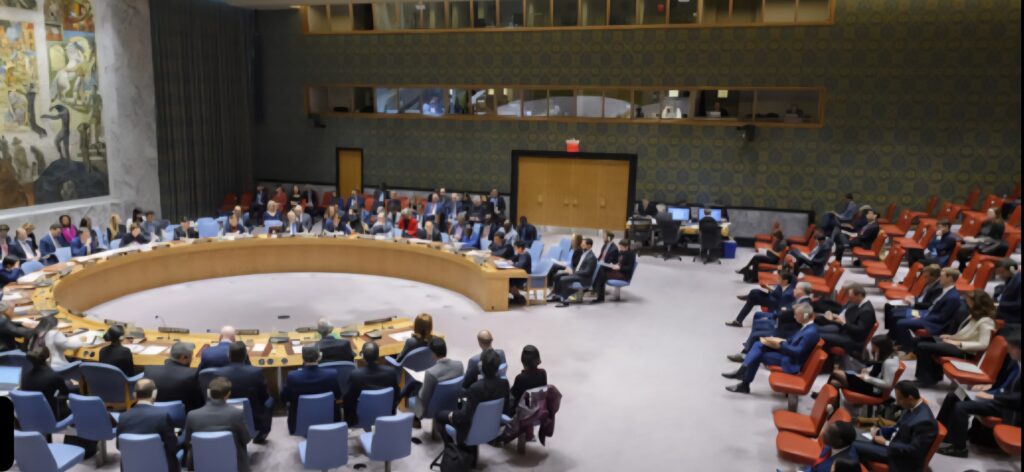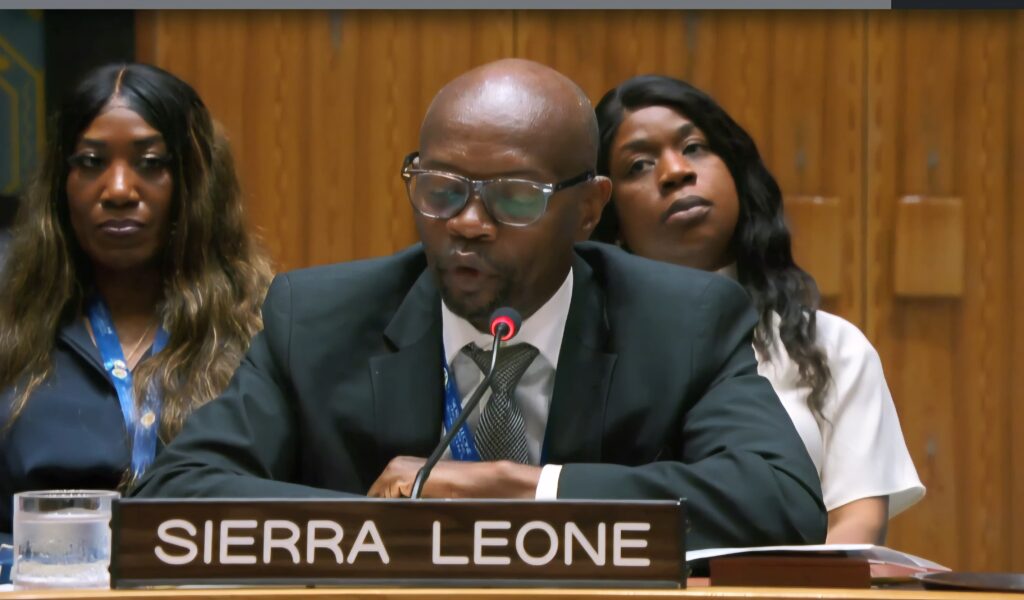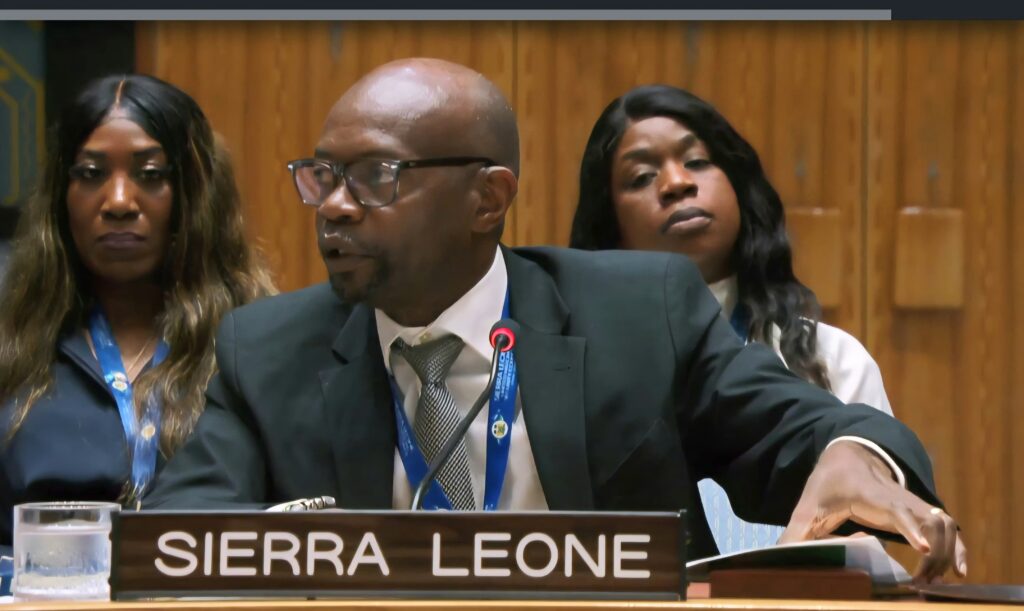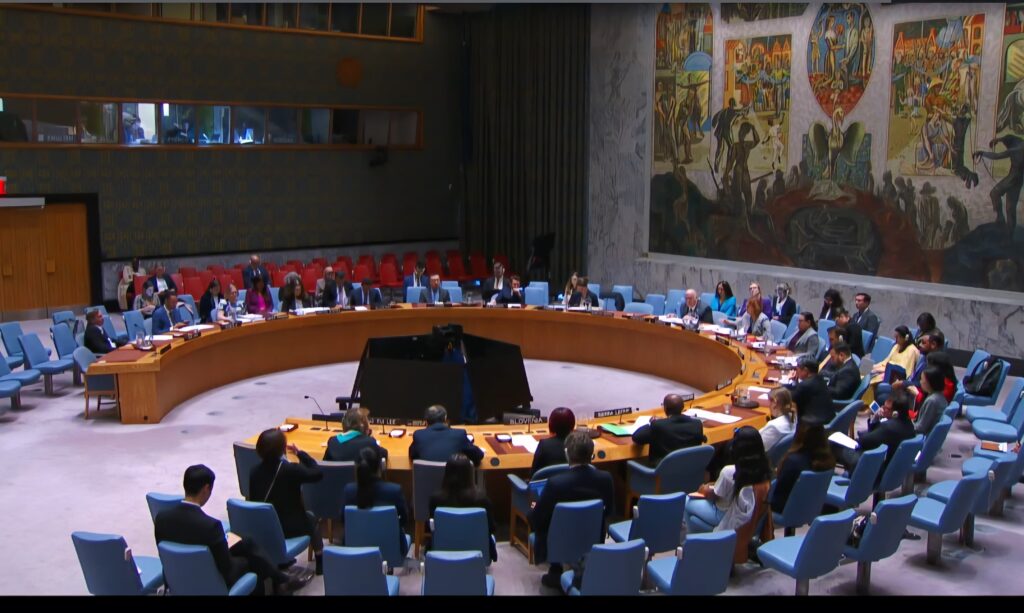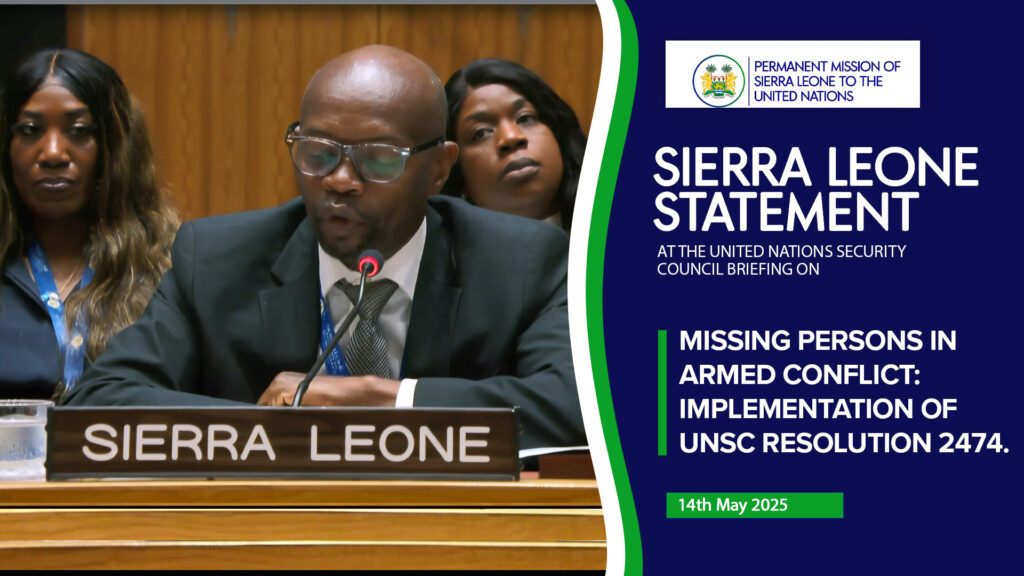Mr. President,
Sierra Leone thanks the Presidency for convening this important meeting at the request of the United Kingdom, the United States, and France.
We also thank Assistant Secretary-General Khaled Khiari for his sobering briefing, and we take note of the testimonies shared by Mr. Sung Eui Lee, Chief Director of the Korean War Abductees’ Family Union (KWAFU), and Mr. Ruby Chen.
Sierra Leone remains deeply concerned by the rising number of missing persons in armed conflicts worldwide, now exceeding 254,000 cases, as reported by the International Committee of the Red Cross (ICRC) and highlighted in the Secretary-General’s report. This is not just a humanitarian concern; it is a profound human tragedy. Thousands of people are presumed dead or forcibly disappeared, leaving behind families in anguish, communities destabilized, and justice denied.
The global landscape is increasingly marked by the intensification of both state-based and non-state conflicts, which have devastating consequences on civilians. Disappearances often result from abductions, extrajudicial killings, and forced removals. Many victims remain unidentified, and families are left searching for answers and closure, sometimes for decades.
According to ICRC data, active investigations into missing persons have reached alarming levels, over 130,000 in Syria alone, more than 17,000 in Lebanon, and thousands more across Africa, Southeast Asia, Latin America, and Eastern Europe. In Ukraine, for instance, there has been a significant rise in missing persons, including children forcibly separated from their families.
Sierra Leone underscores the importance of strengthening efforts to trace the missing, deliver justice, and restore the right of families to know the fate of their loved ones. We support mechanisms established to address this issue, such as the Independent Institution on Missing Persons in the Syrian Arab Republic, and urge greater cooperation with the ICRC and similar humanitarian organizations.
Mr. President,
We further highlight the longstanding case of missing persons resulting from Iraq’s 1990 invasion and occupation of Kuwait. This remains an unresolved humanitarian issue. Despite progress, the fate of many Kuwaiti and third-country nationals remains unknown. We recall the relevant Security Council resolutions that have outlined Iraq’s responsibility to cooperate in locating missing persons. Sierra Leone joins calls for continued efforts in fulfilling these obligations, in accordance with international humanitarian law and the Security Council decisions.
Mr. President,
The anguish of missing persons’ families, their fear, helplessness, and pain, can perpetuate intergenerational trauma and fuel cycles of violence and mistrust. These dynamics hinder reconciliation and peacebuilding. Peace negotiations and transitional justice processes must explicitly integrate measures for addressing missing persons, including truth-seeking, victim support, and memorialization.
Resolution 2474 (2019) remains a milestone in establishing clear obligations on parties to conflict to prevent disappearances, trace the missing, and enable the return of remains. It affirms that protecting civilians and respecting human rights are not optional, but fundamental obligations under international law. Sierra Leone supports practical measures under this resolution, such as proper detainee registration, the establishment of national information bureaus, and training of armed forces on IHL compliance.
The impact of missing persons is particularly severe for children, who are vulnerable to displacement, recruitment, exploitation, and separation from their families. The chaos of conflict obstructs the tracking and reunification of missing children, leaving families in prolonged states of distress.
Women and girls are also disproportionately affected, often victims of sexual violence, trafficking, and forced marriages. Many go missing in these circumstances, further deepening the trauma and destabilization of affected communities.
Sierra Leone remains committed to the full implementation of Resolution 2474, the biennial General Assembly resolution, and broader efforts to prevent and resolve cases of missing persons in conflict. We advocate for strengthening cooperative frameworks and propose the establishment of a global database on missing persons in armed conflict. This initiative would facilitate timely information-sharing and cross-border collaboration for family reunification and justice.
Furthermore, we support the development and adoption of standardized international protocols for reporting and investigating missing person cases. Such protocols would harmonize procedures and enhance the effectiveness of search and identification efforts.
We also stress the need for international cooperation to address root causes, such as conflict, poverty, human trafficking, and displacement. In this regard, we highlight the 2021 Resolution on Missing Migrants and Refugees in Africa, adopted by the African Commission on Human and Peoples’ Rights, which calls for protection of the rights of families and legal frameworks for prevention and accountability.
Mr. President,
Behind every missing person is a story, a family waiting for news, a community disrupted, and a future interrupted. The international community must not relent in its efforts to bring answers, dignity, and justice to those affected.
Sierra Leone reaffirms its unwavering commitment to upholding international humanitarian law, promoting accountability, and advancing multilateral cooperation in addressing the plight of missing persons in armed conflict.
I thank you.
